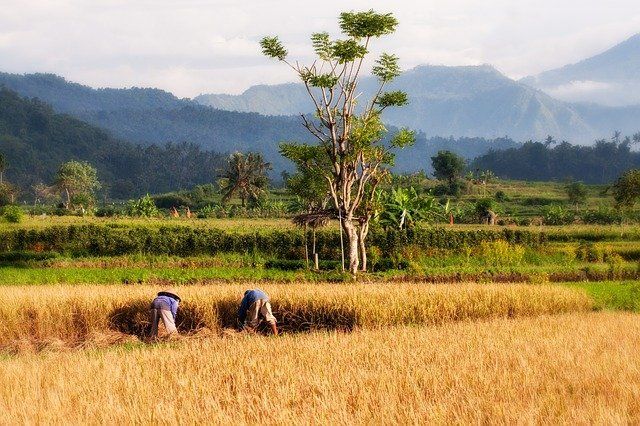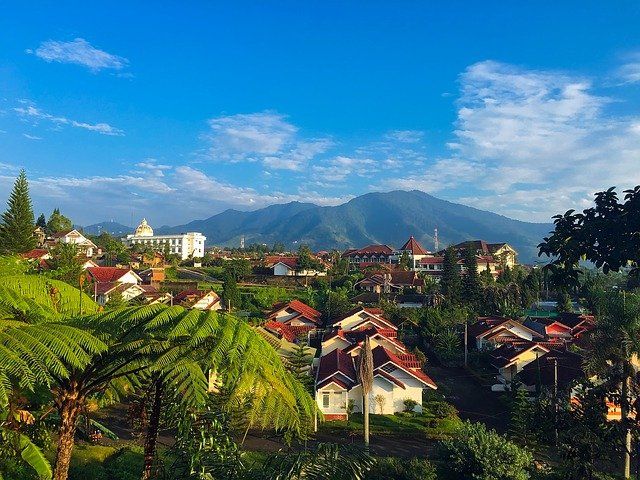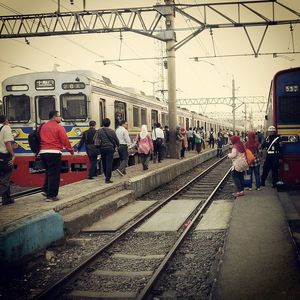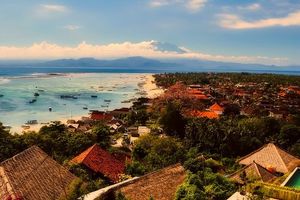The influence of Christian students
Students have been instrumental in shaping Indonesia’s history, ever since the first stirrings of the independence movement against the Dutch colonial regime. During the upheavals leading to Suharto’s downfall last May, students were in the forefront of the struggle. In the eyes of the public, they alone stand free from the taint of corruption, which has spread like canker throughout the entire structure of Indonesian society.
Yet are students any different? With bribes being paid on their behalf to secure preferential treatment, cheating in exams a common practice and religion a condition of academic advancement, we see the same disregard for morality and truth amongst them as others, albeit on a lesser scale. Human nature is universally crooked, and to build hopes for a bright future on the altruism of youth is counter to all the evidence of history. Improved education will not change a student’s moral nature, any more than feeding a starving peasant will make him a better person. The problem is spiritual, not sociological or environmental, and the only answer lies in the gospel of Jesus Christ transforming lives.
A harvest reaped
Evangelistic ministry among students in Indonesia blossomed in the 1970s in a climate where the new Suharto regime prioritised religious education in schools and universities. Campus fellowship groups spread throughout the country. Christian students started witnessing to their friends, inviting them to Bible studies and engaging in a wide range of ministries. Thousands of students were won for Christ. Today many of these converts serve as leaders in their churches or are involved in other Christian ministries. During a recent visit to the island of Java, it became clear that the harvest reaped on the campuses of Indonesia during the 1970s and 1980s is the backbone of the evangelical witness in the country today.

Will these Christians stand the test of discrimination and persecution that the church is facing today? Those who have stood firm against the temptations of material prosperity during the past fifteen years will also stand firm against violence and threats. Many of them see the present crisis as an opportunity to reach out to others, demonstrating compassion, love and forgiveness in ways which are not possible in times of ease. Christian graduates are meeting together, to seek God’s will as to how they can apply their skills and resources to meet the vast and growing problems of poverty, unemployment and malnutrition.
Students abroad
There are thousands of Indonesian students studying abroad, though few come to Britain. They are facing hard times as the rupiah declines in value against other currencies. Some have been forced to cut short their studies, whilst others have taken jobs to pay their way. The Fellowship of Indonesian Christians in America (FICA) seeks to help these students, building up their faith and preparing them for active ministry back home. The trend in Indonesia’s churches has been to develop a comfortable theology, tailor-made to fit a materialistic lifestyle. But many students are prepared to submit to a radically biblical theology, and develop appropriate lifestyles. Great trials lie ahead as the economy deteriorates and the power of Islam grows. They need your prayers.
Examples
‘A’ comes from a Chinese family in Jakarta and is now completing a PhD in America. Last May his family home and shop were looted and burned during the anti-Chinese riots. They are now homeless and bankrupt. Some of his neighbours were forced to watch, as their daughters were gang-raped in the terror campaign to drive the ethnic Chinese from their economic control of the country. As a Christian he struggles with conflicting emotions — anger and outrage indignation and bitterness. What would Jesus have him do?

‘H’ comes from a poor family in Central Java. She scraped through a food science degree, surviving in lodgings that looked like a glorified bike-shed and living on noodles or less. She has worked her way up on the staff of a food and cookery magazine. She now spends all her spare time and weekends running supplementary RE classes for Protestant primary school children, who would otherwise be forced to attend classes in Islam. She got the first taste of this ministry as part of an undergraduate outreach team, and has continued ever since, now leading the programme involving children from more than fifty schools.
‘F’ comes from a small island off the west coast of Sumatra. He graduated in agriculture twelve years ago, and settled down with a good job, a wife and a growing family. But three years ago he resigned from his job and moved to an isolated Christian village to head up an agricultural development project. This is designed to train Christian workers in the rudiments of agriculture, and help the local farmers improve their living standards. He is lonely, needing more support and more training.
‘W’ is of Chinese ethnic origin, although her family has been in Indonesia for several generations. Graduating in English from a private university (there is strong discrimination, which prevents most Chinese entering national universities), she obtained a lucrative job in the tourism industry. Now she uses almost every weekend to teach English in a village junior high school. This involves a horrendous road journey taking many hours each way. She and her colleagues spend the rest of the weekend working with the local Sunday school teachers, returning home late Sunday night.













